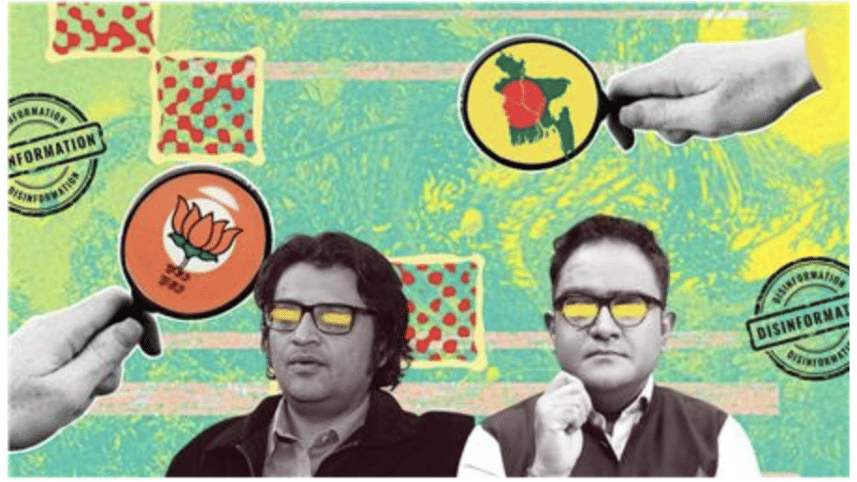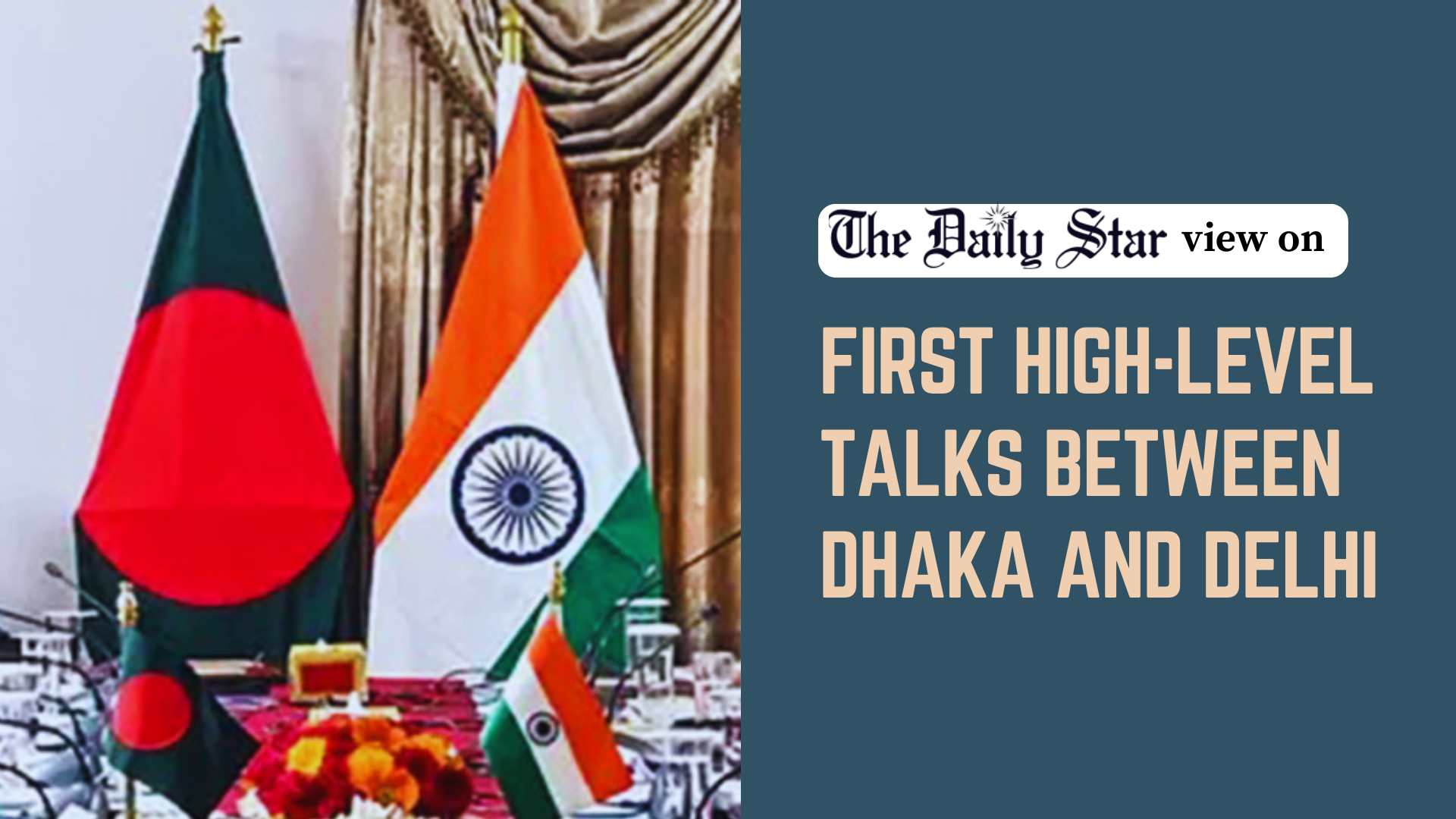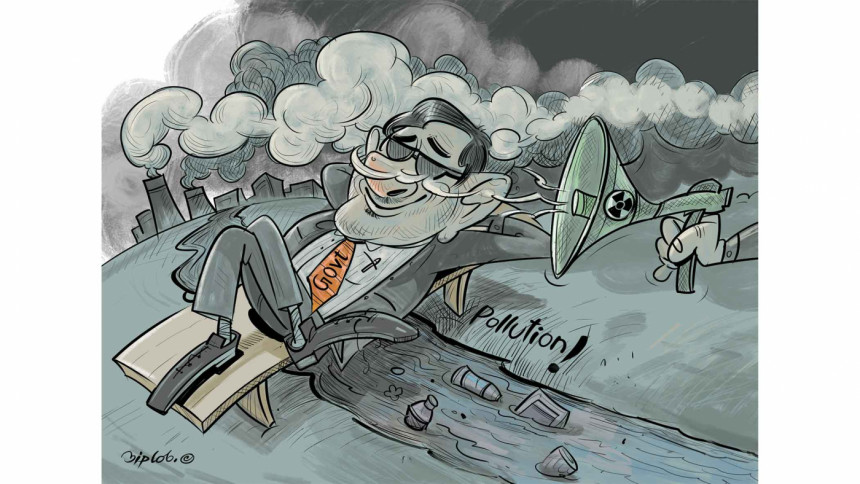The Republic TV’s gospel of gibberish

The magnificent, maddening, melodramatic world of Republic TV, where facts take a back seat and shouting is a virtue. It's a place where Arnab Goswami, India's loudest voice box, reigns supreme, and his Bangalee counterpart, Mayukh Ranjan Ghosh, tries valiantly to match his decibel levels.
For the uninitiated, tuning into Republic TV is like walking into a soap opera. Every broadcast feels like an audition for the role of a lifetime—except Arnab isn't acting; he believes he's India's moral compass and, on occasion, its official spokesperson. Meanwhile, Mayukh crafts his own absurd tales, convinced that every tea stall in Bangladesh is a secret meeting ground for anti-Indian conspirators.
Arnab Goswami wasn't always the yelling sensation he is today. Once upon a time, he was a relatively calm and collected journalist. A graduate of Delhi University and Oxford University, Arnab began his career at The Telegraph before moving to NDTV, where he earned a reputation as a balanced anchor. That all changed when he joined Times Now in 2006 and launched his signature show The Newshour. This was where the seeds of his now infamous style were planted. By the time he founded Republic TV in 2017, Arnab had transformed into a fully fledged shouting machine, with his iconic catchphrase "The nation wants to know" becoming less of a question and more of a command.
Arnab's evolution from journalist to demagogue can be traced through a series of controversies that highlight his penchant for sensationalism over substance. One of the earliest incidents that cemented his reputation was his coverage of the 2008 Mumbai terror attacks. Arnab turned his studio into a theatre of outrage, lambasting government officials and questioning their patriotism. His fiery rhetoric resonated with a section of the middle class, who saw him as a voice of their frustration.
But Arnab's true colours began to show when he started prioritising narratives that aligned with the ruling BJP's agenda. During the 2019 Pulwama attack and the subsequent Balakot airstrikes, Arnab's coverage crossed the line from patriotic to propagandistic. Leaked WhatsApp chats revealed that he had prior knowledge of the airstrikes, raising serious questions about his ethics and his proximity to power. The chats also included a chilling moment where Arnab expressed glee over the Pulwama attack, viewing it as a political opportunity for the BJP.
Arnab's relationship with facts is tenuous at best. During the early days of the Covid pandemic, he falsely accused the Tablighi Jamaat, a Muslim missionary group, of being "super spreaders." This baseless claim fuelled a wave of Islamophobia, leading to hate crimes and social ostracism against Muslims across India. Courts later cleared the Tablighi Jamaat of any wrongdoing, but Arnab, true to form, never apologised or corrected his statements.
Take the time he accused Sonia Gandhi of orchestrating the lynching of two Hindu monks in Maharashtra. Most journalists would investigate the root causes of such an incident. But Arnab skipped the investigation and hopped onto his moral high horse.
Then there's the infamous TRP scam, where Arnab's Republic Network was accused of manipulating ratings to claim it was India's most-watched news channel. If this were any other network, it might have been a moment of reckoning. For Arnab, it was just another day at the office. He emerged from the scandal as he does from every controversy: louder, brasher, and utterly unapologetic.
Then there's Mayukh Ranjan Ghosh, Arnab's eager apprentice. Republic Bangla, the Bangla wing of the Republic empire, has taken Arnab's formula and added its own regional flavour. While Arnab is busy accusing Pakistan of plotting world domination, Mayukh has set his sights on Bangladesh. According to him, Chattogram is India's rightful territory, Bangladeshi satellites are spying on Kolkata, and China is secretly building airbases in the Chicken Neck region.
Mayukh's show, Jabab Chay Bangla, has become a cultural phenomenon, not because it's informative but because it's so outrageously absurd. It's the kind of programme you watch with a mix of horror and amusement. His claims are so outlandish that even die-hard Republic fans would sometimes pause and say, "Wait, did he really just say that?"
The real tragedy here is that this isn't just entertainment. Republic TV and Republic Bangla are dangerous because they blur the line between news and propaganda. Arnab and Mayukh don't just report events; they twist them into narratives that fuel division and hatred. The Palghar lynching, for example, wasn't just a tragedy; it became a weapon in Arnab's arsenal, used to vilify political opponents and stoke communal tensions.
Mayukh, too, is no stranger to fearmongering. His rants about Bangladesh are designed to inflame nationalist sentiments and distract viewers from real issues. In one episode, he claimed that Pakistani warships were docking at Chattogram. The Bangladesh Navy, no doubt baffled by this revelation, probably had to check their port schedules just to be sure.
Arnab and Mayukh aren't journalists; they're performers. Their broadcasts are less about informing the public and more about putting on a show. Arnab's trademark shout is his opening act, his panellists are the supporting cast, and his audience is the unsuspecting victim of this nightly spectacle.
Mayukh, not to be outdone, has perfected his own dramatic flair. His facial expressions range from righteous indignation to exaggerated shock, as if he's just discovered the eighth wonder of the world. His scripts are masterpieces of melodrama, filled with ominous pauses and declarations of doom.
Republic TV claims to be India's most-watched news channel, and Republic Bangla has a growing fanbase in West Bengal. Their viewers aren't just passive consumers; they're believers, convinced that the duo are the last bastions of truth in a world gone mad.
This, of course, is the real danger. Arnab and Mayukh aren't just entertainers; they're propagandists. They use their platforms to spread misinformation, fuel communal hatred, and distract from real issues. Their programmes aren't about holding power accountable; they're about reinforcing the narratives of those in power.
Viewers need to be more discerning, seek out news sources that prioritise facts over theatrics. Until then, the circus continues. Arnab will keep shouting, Mayukh will keep spinning his tales, and Republic's audience will keep lapping it up. As for the rest of us, we can only watch in disbelief and hope that someday, sanity will return to the screens.
H.M. Nazmul Alam is lecturer at the Department of English and Modern Languages of the International University of Business, Agriculture and Technology (IUBAT). He can be reached at nazmulalam.rijohn@gmail.com.
Views expressed in this article are the author's own.
Follow The Daily Star Opinion on Facebook for the latest opinions, commentaries and analyses by experts and professionals. To contribute your article or letter to The Daily Star Opinion, see our guidelines for submission.




 For all latest news, follow The Daily Star's Google News channel.
For all latest news, follow The Daily Star's Google News channel. 

Comments